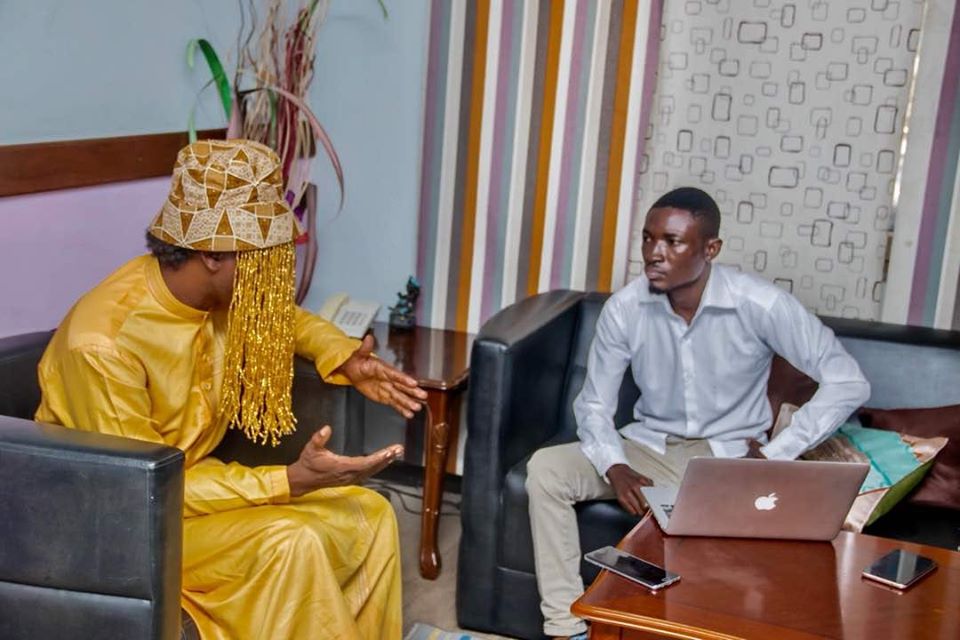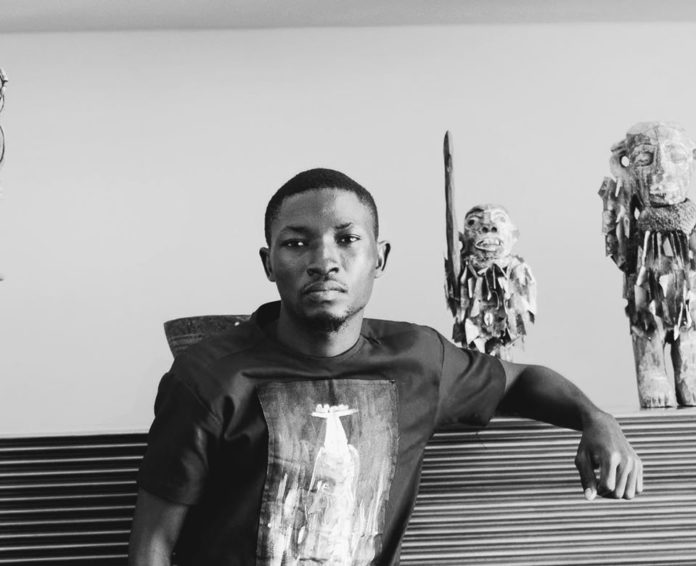|
Getting your Trinity Audio player ready...
|
It may not be his most popular book, but Wrestling with the Devil: A Prison Memoir contains many profoundly expressed thoughts of Kenyan author Ngũgĩ wa Thiong’o.
One, which resonates with Ghanaian entertainment writer Gabriel Myers Hansen, is: “I need life to write about life.”
I know this because, stuck at home in the early weeks of Ghana’s novel coronavirus disease (COVID-19) outbreak, Myers updated his Facebook and WhatsApp statuses with that statement.
Life, from the very beginning of his own, has never been too far from Myers — long before he even grew conscious of that fact, really. He’s a twin — Gilbert is the other, but you mightn’t be able to tell — and, in his post-natal existence, that circle of life has only widened: four more people in his immediate family, quite a few friends only a text message/phone call away, and a masterfully carved niche in an industry dedicated to life and its enjoyment.

He’d always had it in him, but only in 2013 — professionally, at least — did Myers dive fully into the sea of showbiz. And he dived deep, swimming with the biggest fish in there, and making considerable waves. To an observer, he looks a natural; in his own words, he is.
“I’ve hardly been good at much else,” Myers admits to Daily Mail GH, in a tone that’s almost self-deprecating.
“Like many writers, I’ve owned the habit of writing since childhood, dabbling in short stories, poetry and, eventually, blogging. With time, I started publishing on major digital platforms, like Graphic Online and Ghanaweb.”
He wasn’t quite done with his undergraduate degree — in Communication Studies (Journalism) at the Ghana Institute of Journalism (GIJ) — at the time, but his craft sparkled enough for one particularly interested reader, Obed Boafo, to reach out.

Boafo, as it turned out, is himself a communicator extraordinaire, commissioned by media guru Nathan Kwabena Adisi (Bola Ray) for his brilliant It is Possible biography. Spotting Myers’ special gifts, Boafo snapped him up and, under the banner of the Media Obed label, his protégé’s work has taken on added luster.
Myers’ writing, these days, finds publication mainly on Boafo’s Enewsgh website; there, you’d see them lined up in what, for the sheer artistry on display, could be described as an exhibition. Read the first few and, on opening the next, you wouldn’t need the byline to prove its authorship. For Myers, that’s the goal.
“A singular voice is, perhaps, the most important instrument in a writer’s toolbox,” he says. “While my style is homage to my influences, I think it has also cemented my identity.”

Influences, when you analyze Myers’ body of work, are scattered all over the place. There are bits of Malcolm Gladwell, Doreen St. Felix, Oris Aigbokhaevbolo, Toni Morrison, James Baldwin, Zadie Smith, James Joyce, et al. These, to him, are no mere writers; storytellers, he calls them — stylists, even.
All of that adds immense depth and creativity to Myers’ evocative style — just the kind that most Ghanaian readers would rather not dig. The general preference here is for shorter articles, sustained by the flickering flames and fragile frames of Ghanaian celebrity lives, and served with little finesse. The relevance of such stories usually lasts only as long as the attention spans of those who enjoy them — not very long, that is — but that’s the thing about gossip: it never runs out, does it?
It’s hard enough being a writer in this part of the world where the industry doesn’t really pay, a plight that only feeds the sort of paranoia that results from seeing one’s mates in more rewarding fields get ahead in life while you wait for that first big paycheck.

Myers’ less-trodden route, needless to say, only rolls out a more complex map towards securing the popularity from which all other goodies spring. With his eyes still fixed on that prize, however, Myers does have an intact creative integrity — the pride of writing right — to cling to, wearing it as a badge of honor.
“I love that I’m doing what I love to do,” he relates. “That’s purpose, and I don’t take it for granted.”
Someday, inevitably, the tables will turn for Myers and he’d count even greater gains but, till that happens, he remains busy on the turntable.
“In many ways, I consider myself a DJ — only on paper — and so I write to entertain, more than anything else. All writing is a performance in the end.”

Myers has enjoyed audience with some pretty big names, from Grammy nominees (Akon and Rocky Dawuni) to other widely celebrated African artistes (like Cassper Nyovest and Awilo Longomba) and globally acclaimed journalists (Anas Aremeyaw Anas); carrying along memories from each high-profile interview he has conducted, Myers is a living Hall of Fame.
His words have woven the tales shared with him by these personalities into masterpieces, but another tool — tact — is required to weave his way past all those egos. In highlighting that trait, Myers quotes from Talking to Strangers, the latest book by Gladwell, a man mentioned earlier among his influences.
“Sometimes,” the accomplished England-born Canadian posits, “the best conversations between strangers allow the stranger to remain a stranger.”
For Myers, being armed with that knowledge is the starting point to thriving in exalted company.

“I find that famous people crave a great conversation, not an interview,” he explains. “Strangers are more likely to give you that, surprisingly, so I go into each session with the temperament of a stranger, no matter how much research I have on my subject.
“When it works — as is often the case, thankfully — it’s marvelous.”
If you’ve read Myers — as I have, time and again — that last statement wouldn’t sound exaggerated. The flourish with which each piece of his signs off lingers a little in the memory, an enduring testament to the fibers of detail and class that run through all of the 3000-odd words he usually pens “at night, in solitude, and when morose” — just as he likes it.
Not many months have passed since Myers bagged his Masters’ Degree — again from the GIJ, in Journalism — and while he might yet crystallize his academic credentials some more with further studies, Myers doesn’t place so much premium on formal journalistic training.
“Talent is important,” he points out. “Often, education helps hone it, yes, but that could be picked up anywhere — in a classroom or on the job.”

Or — if you’ve been ushered into his personal collection — in books. Myers’ latest set (‘Lockdown Set’, if you like), delivered recently by his ‘dealer’, Inusah Mohamed, includes another by Ngũgĩ and one apiece from the stables of Nigerians Wole Soyinka and Chigozie Obioma.
Whatever Myers himself writes next — on enewsgh.com, musicinafrica.net, Medium, in the one-issue-old Politics & Power Magazine, or a book of essays he has coming up — expect some of that freshly acquired knowledge to seep right through. And, even without a byline, you’ll know it’s him.
Unmistakably so.
NY Frimpong — Daily Mail GH





